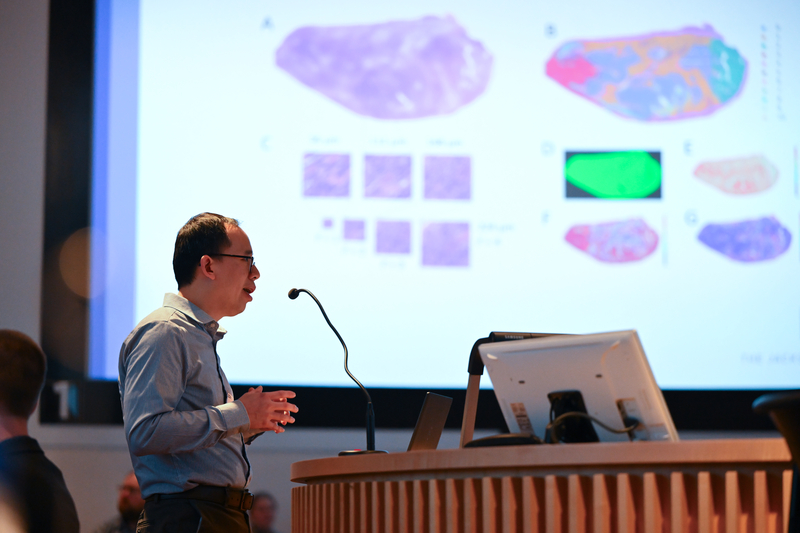
Inaugural UConn-JAX symposium showcases the power of AI to transform medicine and biomedical research
Media Release | May 21, 2025
(Farmington, Conn. — May 21, 2025) – An inaugural symposium jointly hosted by The Jackson Laboratory (JAX), UConn Health, and UConn’s College of Engineering highlighted the transformative potential of artificial intelligence (AI) in healthcare and medicine.
Held Friday, May 16 at the UConn Health campus, the symposium, entitled “Leveraging AI, Data Science, and Computing in Healthcare and Medicine,” brought together leading researchers, clinicians, and engineers from across disciplines to explore how AI is reshaping scientific discovery, streamlining workflows, and improving patient care. The event aimed to catalyze collaboration between institutions and accelerate the integration of AI into the future of medicine.
“By bringing together leading experts in various disciplines, we hope to unlock new possibilities for biomedical research and patient care,” said Mark Adams, interim scientific director at JAX, who helped organize the event, along with UConn Deans Bruce Liang and Ji-Cheng Zhao. “The symposium demonstrated the power and potential of collaboration in AI-driven research.”
The event featured two-minute “speed dating”-style presentations from nearly 30 speakers on topics including cancer diagnostics, immunology, fluid dynamics, and microbiome analysis. The rapid-fire talks took place at UConn Health’s Academic Rotunda and were followed by an hour-long networking session to encourage interdisciplinary interaction.
From JAX, Jeff Chuang, Derya Unutmaz, Damien Chaussabel and Luke Trinity presented at the event. Trinity, a postdoctoral associate in Duygu Ucar's lab, shared how AI is amplifying his research on aging of the immune system. Their team developed a machine learning model—CMVerify—that accurately predicts whether immune cells have been infected by the cytomegalovirus (CMV), a poorly understood but common herpesvirus which takes a toll on the immune system. CMVerify was used in a study to distinguish the effects of aging versus CMV-driven immune signatures in older adults. He noted that AI can serve “as a collaborator, not just a calculator” helping in their lab’s efforts to increase lifespan and health span.
Chaussabel, a principal computational scientist at JAX, discussed how large language models (like ChatGPT) can accelerate biomedical research across various workflows. “We're developing tools that help scientists interpret complex genetic data more efficiently, prioritize candidate genes for further study, and extract valuable insights from spatial genomic information—essentially teaching AI to become a valuable research assistant that helps translate raw scientific data into actionable knowledge faster than traditional methods,” he said, following the event.
Chuang, who leads a computational biology lab focused on cancer imaging, explained how AI is allowing his team to process and interpret high-resolution images of tumor cells with far greater speed and precision. AI, he explained, enables his team to track subtle changes in cells that help to classify cancer subtypes with higher confidence, and therefore better predict treatment response.
Unutmaz, a professor at JAX, as well as a physician, is a leader in immunology and has conducted extensive research on complex diseases, including Myalgic Encephalomyelitis/Chronic Fatigue Syndrome (ME/CFS). As an avid user of AI tools in his research, he spoke near the event’s end, stating that AI in biomedical science has the capacity to yield results “beyond what anyone can imagine, transforming the way we see patients.” He highlighted the emerging use of “digital twins”—AI-generated models that replicate human physiology—which could revolutionize precision medicine by enabling researchers to simulate individual patient responses and test interventions before administering them in real life.
“As AI becomes a central force in scientific discovery and clinical care, events like this symposium are critical to fostering cross-disciplinary dialogue and innovation,” said Adams. “For both JAX and UConn, the symposium served as a launching point for new partnerships and a deeper integration of AI into the future of biomedical science.”
Photo Gallery
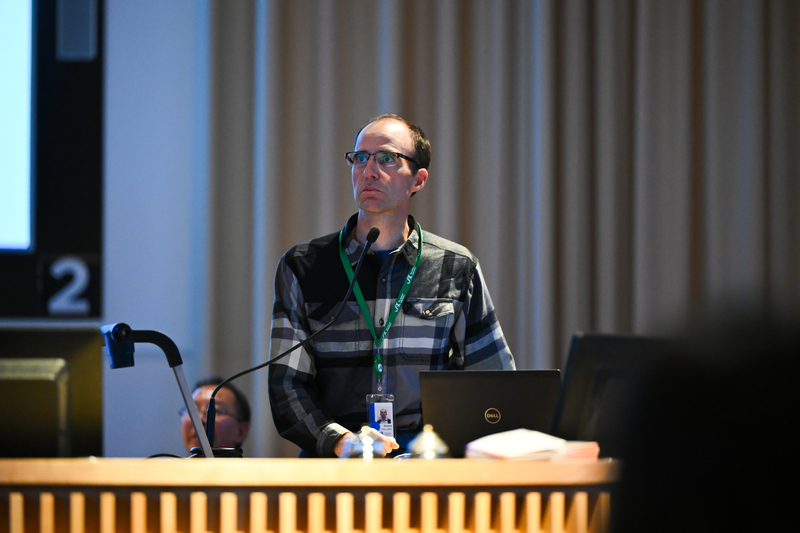
Damien Chaussabel, Ph.D.
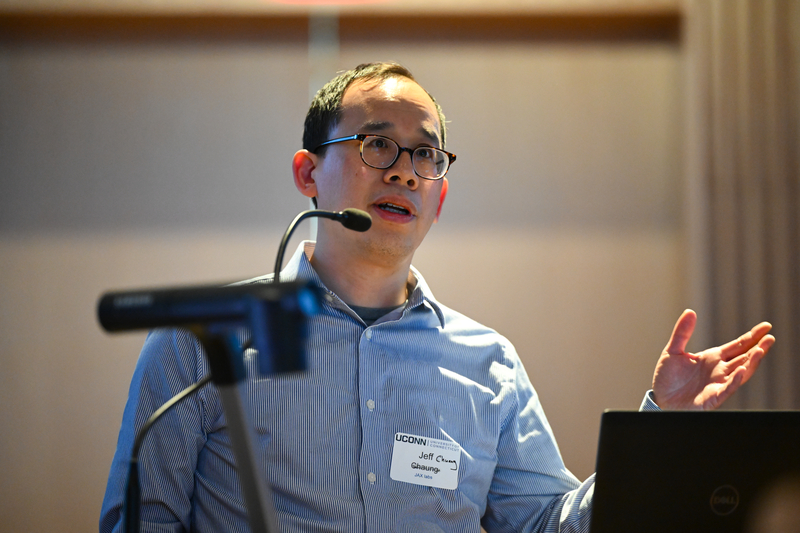
Jeffrey Chuang, Ph.D.
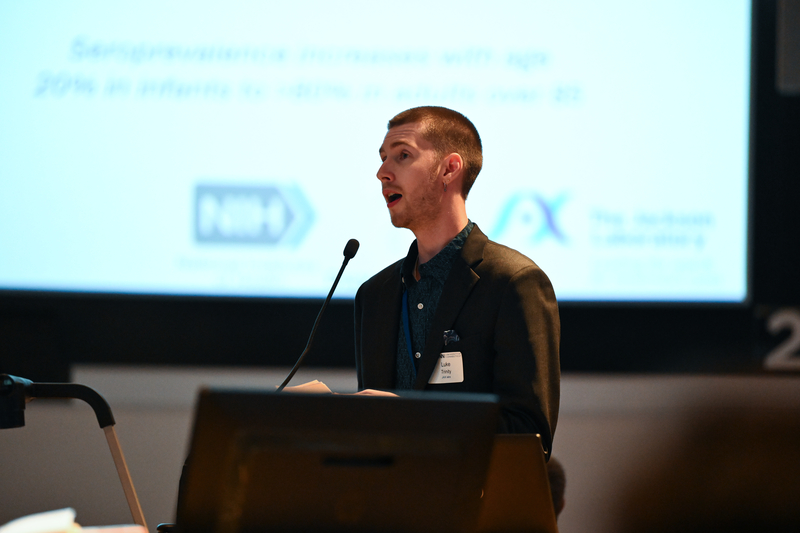
Luke Trinity, Ph.D.
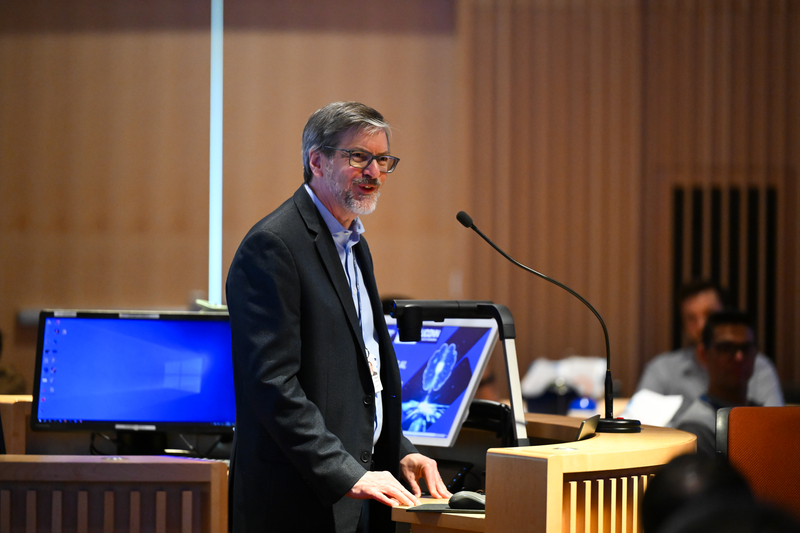
Mark Adams, Ph.D.
